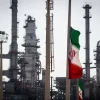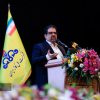Global trade instability is creating new challenges for the nuclear industry, as tariffs and trade actions disrupt supply chains and complicate procurement of critical materials. To help its members navigate these developments, World Nuclear Association hosted a recent expert briefing examining the implications of tariffs and trade restrictions on the nuclear sector.
The webinar featured insights from international trade specialists at Pillsbury Winthrop Shaw Pittman LLP, building on their earlier presentation to the Association’s Economics, Law and Finance Working Group in April. Over 160 participants joined the session, reflecting widespread interest in the topic.
Serge Gorlin, Head of Membership and Business Development at the World Nuclear Association, moderated the session, which included presentations by Elina Teplinsky (Partner and Deputy Chair of the Working Group), Sahar Hafeez (Senior Counsel), and Ata Akiner (Senior Associate).
The speakers explored the impact of new and existing US tariffs on the nuclear supply chain, from raw materials to manufactured components. Teplinsky provided historical context, outlining longstanding challenges such as export control restrictions and anti-dumping measures, including the Russian uranium suspension agreement. She also addressed more recent developments, including a Section 232 petition by US uranium miners seeking import restrictions, and sanctions on Russian nuclear material.
“The nuclear supply chain is truly global,” Teplinsky emphasized. “Every link is vulnerable to trade actions and tariffs that can ripple across borders.”
Hafeez offered practical advice for companies navigating the tariff landscape, stressing the importance of reviewing contracts to determine liability for tariffs, understanding country of origin rules, and identifying opportunities for tariff exclusions. “Understanding your supply chain inside out is no longer optional,” she noted.
Akiner provided insights into reciprocal tariffs affecting imports from various countries, noting that negotiations are underway with 17 key US trading partners—excluding China—to ease some of these measures. “Monitoring these discussions and preparing to respond is crucial,” he said.
The speakers also highlighted broader trade policy trends, including an ongoing Section 232 investigation by the US Department of Commerce into critical minerals such as uranium. Members were encouraged to participate in the public comment process to ensure nuclear sector perspectives are considered. Stakeholders can submit comments through the US Department of Commerce’s online portal during the designated comment period.
Additional measures, including increased steel and aluminum tariffs and new shipbuilding fees, also carry implications for nuclear components, underscoring the importance of continuous industry engagement with policymakers.
World Nuclear Association remains committed to supporting members as global trade dynamics evolve. Slides from the session are available to members here.






